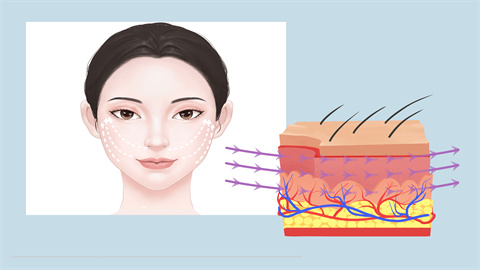What are the side effects of thread lifting for facial rejuvenation?
Generally, as a minimally invasive cosmetic procedure, thread lifting for facial rejuvenation may lead to possible complications including localized swelling and pain, uneven skin surface, unnatural facial expressions, thread exposure, and infection. A detailed analysis is as follows:

1. Localized swelling and pain: After thread lifting, facial tissues often swell due to irritation and puncture injury caused by the threads. Swelling typically occurs in the areas where threads are inserted and varies in severity among individuals, usually subsiding gradually within several days. Mild pain, often described as distending or stabbing pain, may accompany the swelling, and is associated with the inflammatory response triggered by tissue damage.
2. Uneven skin surface: Some patients may develop an uneven facial skin surface postoperatively. This is often due to improper layering of thread placement, uneven tension from the threads, or differences in the degree of postoperative tissue swelling. This condition may improve after the swelling subsides. If it persists, it is commonly related to abnormal thread positioning.
3. Unnatural facial expressions: In the short term after surgery, patients may experience unnatural facial expressions, such as stiffness during smiling or frowning. This is usually caused by temporary restriction of facial muscle movement by the threads or impaired muscle activity due to postoperative swelling. Facial expressions generally return to normal as tissues adapt and swelling diminishes.
4. Thread exposure: In rare cases, threads may become exposed. This typically occurs when threads are inserted too superficially, are not securely fixed, or due to changes in facial skin tension after surgery, causing the thread ends to protrude through the skin surface.
5. Infection: If postoperative care is inadequate, such as contact with contaminated water, failure to maintain wound cleanliness, or incomplete disinfection during the procedure, local infection may occur. Signs of infection include redness and swelling in the threaded area, increased pain, and even exudation.
Postoperative care should follow professional guidance, including maintaining facial cleanliness, avoiding vigorous rubbing of the threaded areas, and minimizing exaggerated facial expressions. These measures help reduce the risk of complications and promote recovery.




